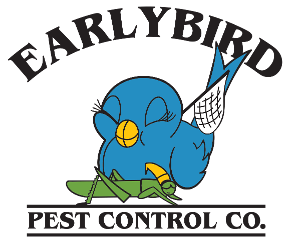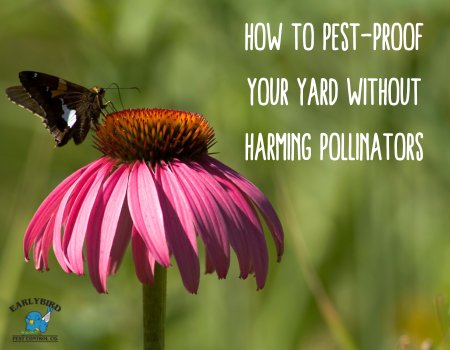Arizona homeowners often face a challenge every spring and summer: keeping gardens, yards, and outdoor spaces free of pests while protecting the very insects that make ecosystems thrive. Bees, butterflies, and other pollinators are essential for flowers, vegetables, and fruit trees, yet many traditional pesticides pose a risk to these vital creatures. Understanding eco-friendly pest control in AZ allows you to maintain a healthy yard while promoting biodiversity.
Why Pollinators Matter
Pollinators play a crucial role in gardens and ecosystems. Bees, for instance, help flowers reproduce and increase crop yields, while butterflies and other insects contribute to natural plant diversity. Without pollinators, fruit, vegetable, and flower production suffers, and local ecosystems become imbalanced. Arizona’s desert environment is particularly sensitive, so sustainable pest prevention is essential to maintain harmony between your yard and nature.
Common Yard Pests in Arizona
Arizona’s climate encourages a variety of pests that can threaten plants and outdoor spaces, including:
- Aphids and mealybugs that feed on plant sap
- Spider mites that thrive in dry, hot conditions
- Ants, including fire ants that can harm both humans and pets
- Grasshoppers and leaf-eating insects
While these pests can damage plants, using harsh chemical pesticides indiscriminately can harm pollinators and other beneficial insects.
Strategies for Eco-Friendly Pest Control
1. Plant Pollinator-Friendly Companion Plants
Certain plants naturally deter pests while attracting beneficial insects. Marigolds, basil, lavender, and nasturtiums can repel aphids and other pests while providing food and habitat for pollinators. Companion planting creates a balanced ecosystem that reduces the need for chemical interventions.
2. Use Physical Barriers
Simple barriers can prevent pests from reaching your plants without affecting bees or butterflies. Examples include:
- Fine mesh or row covers over vegetable beds
- Sticky traps or pheromone traps to catch specific insects
- Raised garden beds that reduce access for crawling pests
Physical methods are low-impact and keep pollinators safe.
3. Apply Organic or Biodegradable Treatments
When intervention is necessary, choose treatments that break down naturally and pose minimal risk to pollinators. Neem oil, insecticidal soaps, and diatomaceous earth target specific pests without harming bees. Use sprays, either in the early morning, or late evening when there’s less activity by pollinators.
4. Encourage Beneficial Insects
Ladybugs, lacewings, and predatory wasps consume aphids, mealybugs, and other pests. Planting flowers such as yarrow, fennel, and dill attracts these natural predators, allowing them to help maintain balance in your yard.
5. Maintain Healthy Soil and Plants
Healthy plants resist pests more effectively than stressed or nutrient-deficient ones. Regular watering, mulching, and soil amendments encourage strong growth, making it harder for pests to take hold. In Arizona, careful watering also conserves resources and prevents stress from extreme heat.
Monitoring and Timing
Observing your yard regularly allows early detection of pest activity. Catching infestations early prevents the need for aggressive treatments that could affect pollinators. Be mindful of when pollinators are most active—typically mid-morning to early afternoon—and schedule any treatments outside these periods.
Benefits of Sustainable Pest Prevention
- Protects pollinators: Ensures bees, butterflies, and other beneficial insects can continue pollinating your garden and local ecosystems.
- Reduces chemical exposure: Minimizes harmful residues in soil, water, and surrounding plants.
- Promotes long-term yard health: Balanced ecosystems are more resilient to pests over time.
- Cost-effective: Companion planting, physical barriers, and beneficial insects reduce the need for repeated chemical applications
Pest-proofing your yard in Arizona does not require harming pollinators or the environment. When you combine companion planting, physical barriers, organic treatments, and careful monitoring, you can maintain a healthy, productive yard while supporting bees and butterflies. Sustainable pest prevention protects your plants, conserves resources, and ensures that pollinators continue to thrive in your outdoor space.
Taking an eco-conscious approach to pest management allows you to enjoy a beautiful, pest-resistant yard while contributing to a healthier environment.


Recent Comments